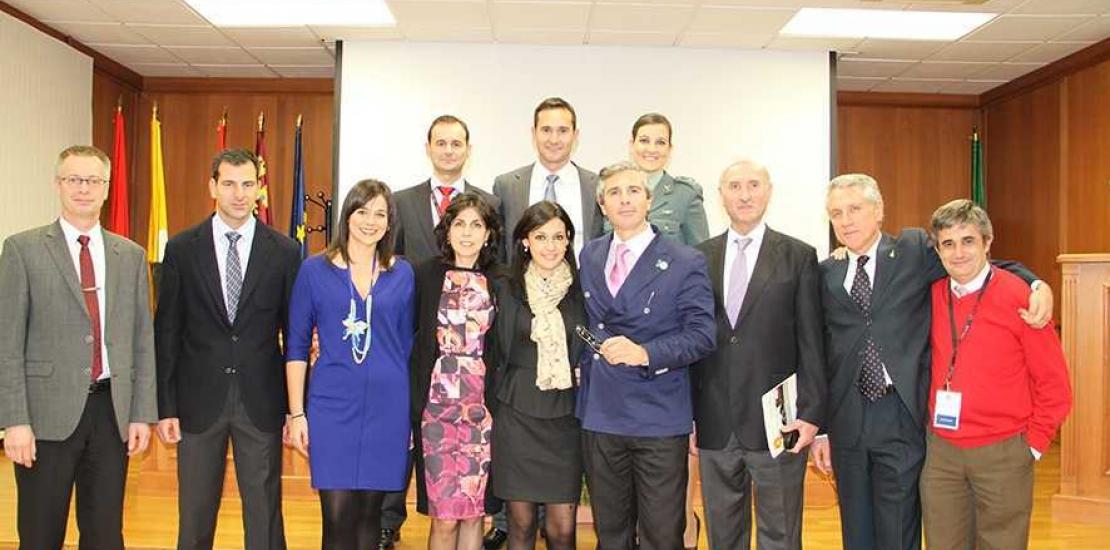"We cannot fight a criminal organization without cutting off their income vessels"
The head of the International Cooperation Unit of the Spanish National Police has analyzed the importance of EUROPOL in relation to organized crime, at a conference held in UCAM today
The past 13th and 14th February, The Catholic University of Murcia, organized by the Faculty of Criminology, held the First International Congress of Criminology, titled 'Transnational Organized Crime and Fundamental Human Rights'.
The executive deputy director of the European Border Agency 'Frontex', Mr Gil Arias Fernández, gave an opening speech in which he spoke about this agency as an European institution for the management of operational cooperation on country borders, and in which he focused on the problem of illegal immigration.
EUROPOL / INTERPOL
The responsible for the International Cooperation Unit of the National Police, Ms Alicia Malo; and the head of the Technical Unit of the Judicial Police in International Cooperation of the Civil Guard, Ms Adriana Maria Tostón gave a lecture on EUROPOL and its instruments of international collaboration, information sharing, supporting international research and control, all in relation to organized crime.
For Ms Alicia Malo, today's organized crime groups are no longer only specialized in one activity, but now they are active in several areas (for example drug trafficking and money laundering). She stressed the need for all the international bodies involved to act together synergetically to fight this problem. "You cannot conceive safety partially; the more actors involved the better the outcome" she added. She also noted that "we cannot fight an organization if we do not cut their income vessels" This idea was stressed by the Head of the National Police, Ms Eva Gutiérrez, who focused her presentation on INTERPOL, and in reference to organized crime stated that "it is vital that we dismantle its financial structure".
The internationalization of crime
Ms Gil Arias said that "the internationalization of crime is the scourge of this century", and stressed the need to respect the fundamental rights of the individual. With regard to illegal immigration, she stated that "the problem of loss of life is something extremely difficult to solve. If there is no stable solutios in the countries from which immigrants come from, there will be no possible solutions at EU level".
"The highest volume of illegal immigration today is concentrated in the Central Mediterranean area" said Gil Arias, adding that "the southern border is the most problematic for the EU, and within this area, it is the Italian border that suffers the most pressure and where unfortunately most tragedies occur".
The Governmental Delegate of the Region of Murcia, Joaquín Bascuñana García; the Rector of the UCAM, Josefina Garcia Lozano; and the Vice-Dean of the Degree in Criminology, José María Caballero, were present at this presentation. The latter outlined that "we are faced with an eternal dilemma between freedom and security".
University rector, Ms Josefina García Lozano recalled that UCAM was one of the first universities to offer the Degree in Criminology, "which aims to meet society's need for training professionals in this area of expertise".




